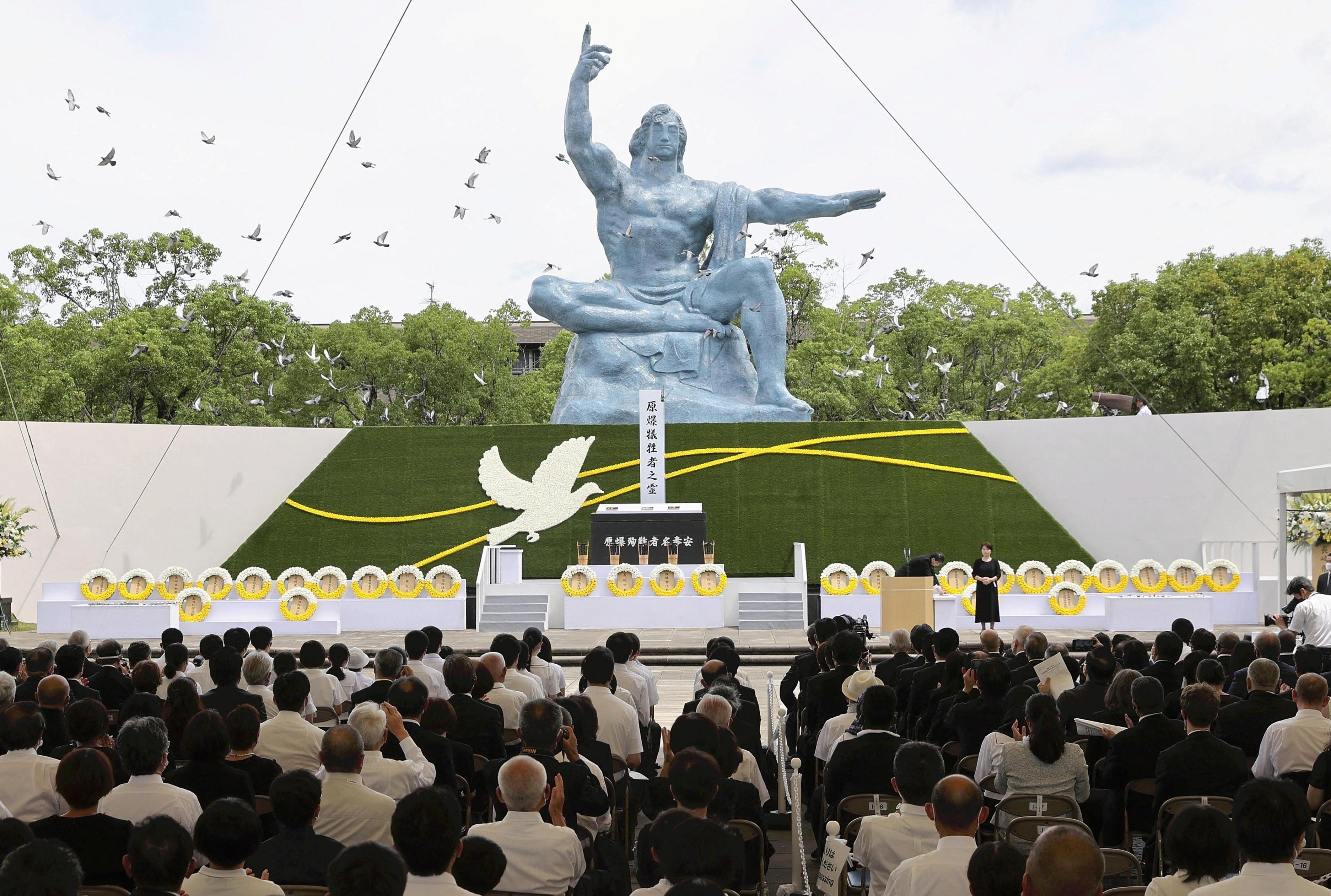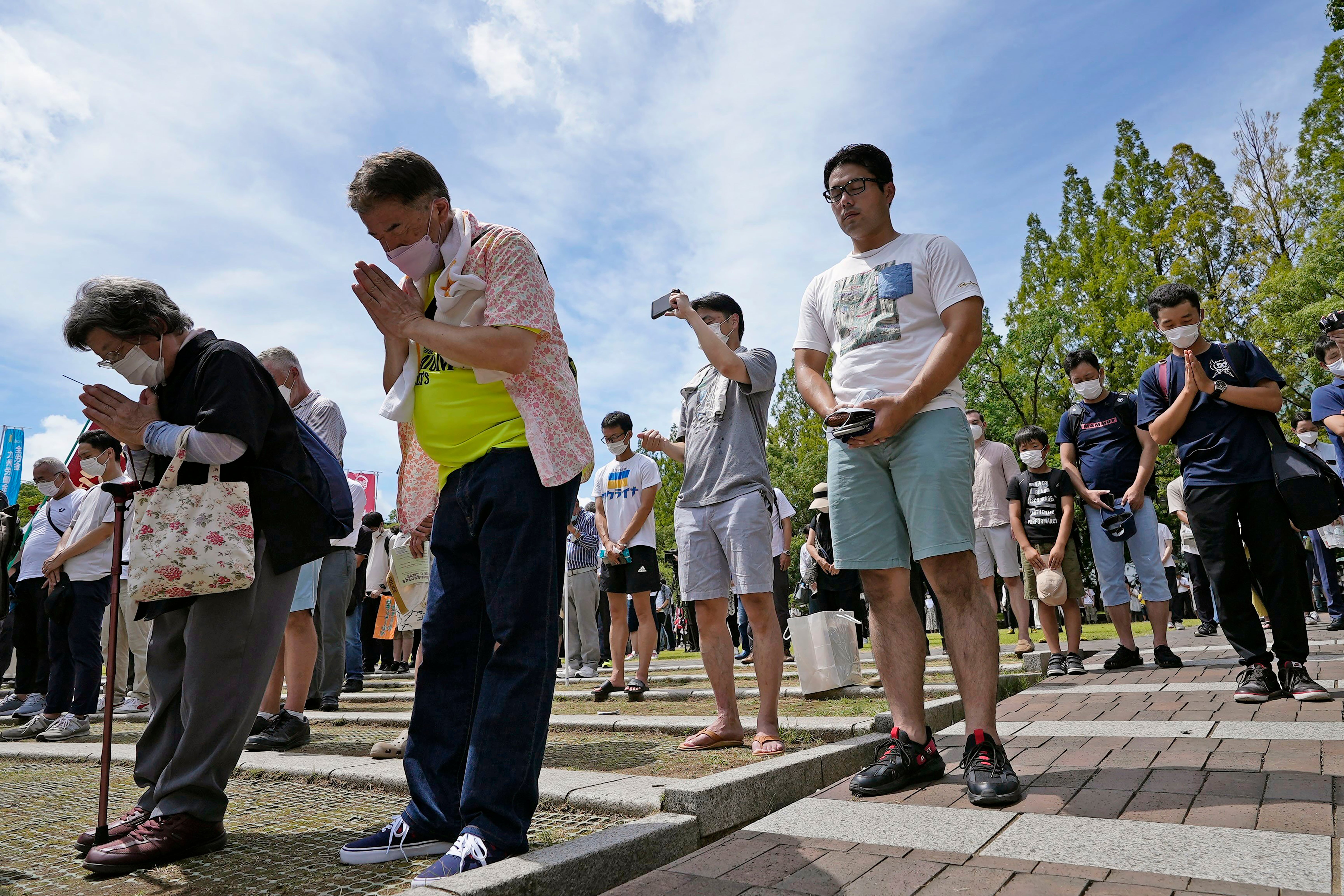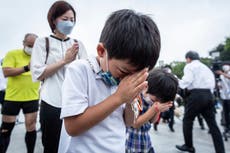Nagasaki mayor warns of nuclear fears in Ukraine as Japan marks grim anniversary
Belarus and Russian diplomats were not invited by Japan to mark annual ceremonies
The possibility of another nuclear attack is not a “groundless fear” but a “tangible and present crisis” in the Russia-Ukraine war, Nagasaki’s mayor has warned as residents of the city marked the grim anniversary of the world’s worst atomic bombing.
Residents there paid tribute to those who were killed after the US dropped its second atomic bomb on the Japanese city 77 years ago.
The bombing killed some 70,000 people and gave several generations of people crippling diseases that emerged as side effects from lingering radiation.
Tomihisa Taue, the mayor of Nagasaki, condemned the existence of nuclear weapons and said they would be continued to be used till the time they are not eliminated.
“In January this year, the leaders of the United States, Russia, the United Kingdom, France and China released a joint statement affirming that ‘a nuclear war cannot be won and must never be fought’,” he said in his speech on Tuesday at the Nagasaki Peace Park.
“However, the very next month Russia invaded Ukraine. Threats of using nuclear weapons have been made, sending shivers throughout the globe. This has shown the world that the use of nuclear weapons is not a groundless fear but a tangible and present crisis,” he said.
Believing that nuclear weapons should be possessed by countries for war deterrence without actually using them is “a fantasy, nothing more than a mere hope”, Mr Taue added.
The officials of two cities, Hiroshima and Nagasaki, where bombs were dropped in 1945 did not invite Russia or its ally Belarus to the memorial event on 6 and 9 August to mark the 77th anniversary of the tragedy.

“We really wanted to invite them, but the reality is difficult,” Mr Taue said on 26 May.
A huge mushroom-shaped cloud covered Hiroshima on 6 August 1945 when the US dropped the world’s first atomic bomb over the city and killed 140,000 people.
It dropped a second bomb three days later on Nagasaki, killing more than 70,000 people, to force Japan to surrender on 15 August. The devastating bombings ended the Second World War and Japan’s nearly half a century of aggression in Asia.
Diplomats from the nuclear states, politicians and the general public observed silence at 11.02am, the moment the bomb exploded above the southern Japanese city.
“Even though we face a severe security environment, we must pursue the history of non-nuclear use and make Nagasaki the last place of nuclear attack,” prime minister Fumio Kishida said.

Russian president Vladimir Putin has warned of escalation of his so-called military operation in Ukraine into a full-blown nuclear war, but those grim warnings were rolled back by the Kremlin last week.
Russia has meanwhile continued to shell a Ukrainian city close to Europe’s largest nuclear plant, raising fears of a possible nuclear leak in Europe.
Mr Taue said discussions about nuclear disarmament and non-proliferation over the past decades have not been put into practice and trust in the 1968 Treaty on the Non-Proliferation of Nuclear Weapons has become “tenuous”.
“We must recognise that ridding ourselves of nuclear weapons is the only realistic way of protecting the Earth and humankind’s future,” Mr Taue said.
Additional reporting by agencies
Join our commenting forum
Join thought-provoking conversations, follow other Independent readers and see their replies
Comments





Bookmark popover
Removed from bookmarks